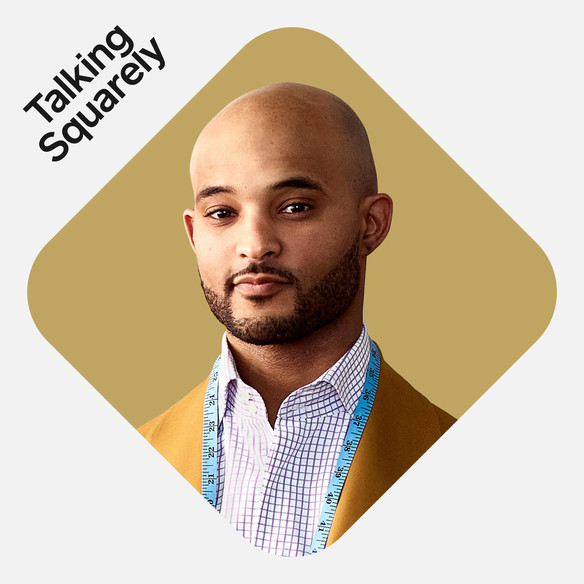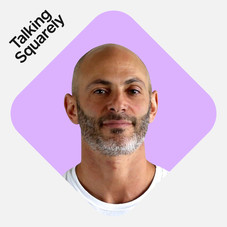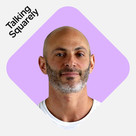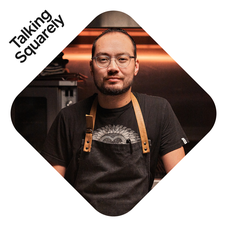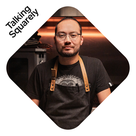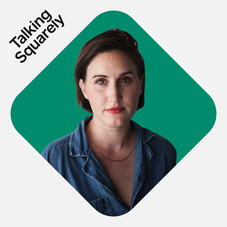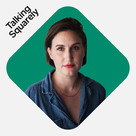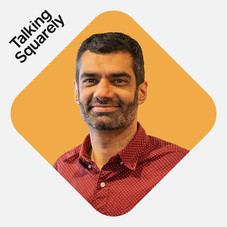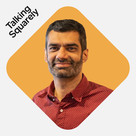Table of contents
A little bit about this episode on marketing strategy during the pandemic…
As new health data and guidelines are released, reopening plans across the United States are ever-changing. And, for business owners looking to encourage customers to return to brick-and-mortar locations, prioritizing the health and safety of their employees and community is both a tactical and marketing challenge. We sit down with three business owners to discuss marketing during the pandemic and how they’re ensuring their community is not only informed about the types of precautions they’re implementing, but also ultimately feels comfortable revisiting their stores.
This episode features Omar Kinnebrew, owner of Bespokuture in Atlanta, GA; Nicholas Pidek, owner of Foster Coffee Co. in Owosso, MI; and Dr. Jonathan Kaplan, owner of Pacific Heights Plastic Surgery in San Francisco, CA. Want to know a little bit more about our host? Follow Square’s Nelson Murray for more.
As businesses prepare to re-open or adjust to changing guidelines and protocol for operating during the COVID-19 pandemic, small business owners are managing everything from safety measures to fluctuating customer demand.
For some, like Dr. Jonathan Kaplan, owner of Pacific Heights Plastic Surgery, health and safety has always been a priority but changes were still made to keep customers and staff safe. “We didn’t just start keeping things sterile in our office operating room. We didn’t just start using hand sanitizer.” he says “But we did want to let them know that the building was requiring masks, that they were going to have their temperature checked when they came in, that all of their paperwork would have to be filled out before they even got here.
In Atlanta, Bespoktuture owner Omar Kinnebrew says they had to adapt their business to the changing protocols around COVID-19. “We went to complete virtual interactions and fortunately Bespokuture was set up for, our out of state and out of country clients to work remotely and provide swatches digitally, or be prepared for a virtual measurement session or design consultation. So we were good to go on that front and then as the months trickled along and the economy started to solidify a bit.” he says.
Before the pandemic, Kinnebrew says they would try to reach their customers using all of their available marketing channels — on social media, through their website, by hosting or sponsoring events, and more. They’ve since doubled down on their investment in social media and their website to reach customers.
This strategy was shared by Foster Coffee Owner Nicholas Pidek who stayed in constant communication with their customers to let them know of changes as well as listen to their feedback. “We’re very forthright and we just said, we don’t have a team of lawyers, we don’t have a staffed HR department where all they’re doing is thinking about COVID and safety and protocols. We said, we are doing the best that we can with the information that’s given to us and so give us your feedback.” he says. By focusing on the human element, people were able to see the people behind their company and connect with them.
Full transcript below:
Omar Kinnebrew:
I like, again, that approach of open the doors and just, hey, what really inspires people about what we’re doing? How can we be more impactful as a brand, to a potential client, to our clients, to those who just enjoy what we’re doing and what we’re putting out there? In my mind, there’s always room to do more.
Nelson Murray (host):
Hi, I’m Nelson Murray and this is Talking Squarely. In this series we bring together independent business owners to have frank discussions and share their perspectives on some of the most pressing issues impacting their lives and livelihoods. As new health data and guidelines regarding the pandemic are being released throughout the country, independent businesses are left with the onus of adapting their marketing and communication strategies, to relay their safety expectations to staff and customers. Today we talk with three owners of distinctly different businesses, about how pivoting their marketing efforts has impacted the way each of them do business.
Jonathan Kaplan:
Well, I think as a medical practice, the patients, the consumers that are considering coming in, we’re able to email them and let them know what we’ve done differently as far as keeping them safe.
Nelson Murray (host):
That’s Dr. Jonathan Kaplan, a plastic surgeon based in San Francisco.
Jonathan Kaplan:
We didn’t just start keeping things sterile in our office operating room. We didn’t just start using hand sanitizer. So, we’re already wearing gowns and things in the operating room. So that was a little bit of a easier sell, for lack of a better term to the consumer. But we did want to let them know that the building was requiring masks, that they were going to have their temperature checked when they came in, that all of their paperwork would have to be filled out before they even got here.
Nelson Murray (host):
For Omar Kinnebrew, rethinking the business model for his Atlanta based tailoring and custom suit store, Bespokuture, was key to staying engaged with customers.
Omar Kinnebrew:
We went to complete virtual interactions and fortunately Bespokuture was set up for, our out of state and out of country clients to work remotely and provide swatches digitally, or be prepared for a virtual measurement session or design consultation. So we were good to go on that front and then as the months trickled along and the economy started to solidify a bit. Especially in Atlanta, we started to see very relaxed or much more relaxed, I guess, way of life in relation to the rest of the world, as it pertained to the understanding the virus. And then how we were engaging as far as stores and going out and engage with people.
Nelson Murray (host):
Similar to Omar, Nicholas Pidek, has had to continuously adapt his Michigan coffee business, Foster Coffee Company, based on the comfort level of his customers.
Nicholas Pidek:
It’s different in each location. We have one in a small town of 15,000, we have one in downtown Flint and we have one in East Lansing right across the street from MSU. So, there’re some factors there that’s hard to really tell, I think that’ll be our biggest challenge moving forward there is navigating more college students and how to deal with the volume safely. Owosso almost… it’s our hometown, it’s where we started. We saw very, very consistent, people were very, very comfortable coming in throughout all of the changes of what was happening. And then in Flint, we’re very dependent on downtown working traffic, people coming to downtown. So, since that has partially come back, we’ve seen an uptick. So, it’s hard to tell now and I think we’re just kind of thinking about what does the next wave, what’s kind of the fall and winter going to look like?
Nelson Murray (host):
You’ve each touched on the fact that the pandemic is constantly changing the way that you conduct business and ensure the safety of your customers and employees, but just as important is the way that you communicate those changes and protocols. In your own words, how would you describe each of your approaches to marketing? What are your goals that you’re trying to achieve in general? And what are some of the specific goals that are unique to this moment in time?
Jonathan Kaplan:
Sure. I mean, so as a medical practice, as a plastic surgery practice, I mean, we obviously it’s about patient safety first, we are in the medical field. But we are also a business and we’re operating on patients and doing other procedures. So, we have to conduct our business in a way that, obviously we’re generating revenue so we can stay in business. But the overarching goal obviously is patient safety. So, we just have to make sure that we’re doing the right thing by the patient, but also spending a little bit more money on safety measures, additional PPE or personal protective equipment, just to make sure that the staff, including the staff and the patients both feel comfortable.
Nicholas Pidek:
Yeah. I would say, when it comes to marketing, much like Jonathan said, safety is obviously at the forefront, I think of everybody’s mind and they kind of have these two scales right, safety and then viability in some standpoints. Just because operating safely, I’m sure as Dr. Kaplan knows with all the regulations that he has in a medical field, so does coffee, so does food.
So, we’re already kind of aware of this sense of health inspections and making sure that we’re keeping the forefront of our customer’s safety in mind. For us, it’s just making sure that we are navigating the safety of our staff and the safety of our customers and really overcoming the perceptions with whether it’s masks or coming in do we have gloves on. It’s making sure that we’re keeping in mind what we actually need to be doing from the government standpoint and then what our customers are expecting of us, what they’re reading, and those two worlds don’t always match. And then they’re constantly shifting. Both of them are. So it’s kind of like a pivot here, executive order says this, a customer’s nervous about this, or a group of customers is concerned about this, that maybe, the government doesn’t really care too much about, and then everything changes. So, it’s kind of like this moving dominoes, checkers, chess game, all rolled into one.
Nelson Murray (host):
Omar, from your point of view, how maybe have your attempts to market your business and your product offering to your customers, how have those things changed as the perceptions about people’s health risk, your own assessment of health risk have changed over the course of the summer?
Omar Kinnebrew:
At first, I have to figure out how to ensure that custom, as an offering is still relevant to our audience. And a time in which majority of individuals are staying at home and they’re not meeting face to face, or even if they’re on a Zoom or Skype call, they are in a T-shirt or very much dressed down, or with client whose weddings have been canceled or rescheduled to next year. How to reposition Bespokuture in a light that says, Hey, customer’s still relevant, feel comfortable in investing your money and looking fantastic and then after getting over that hurdle, then we get to the point where, how the conversation of ensuring the clients that we’re taking the proper measures, because their safety is first and not just their safety, but my safety as well.
Nelson Murray (host):
I want to stay with this notion of tone for a moment. Has the way that you’ve interacted with your customers outwardly, whether that’s on social channels like Instagram or Facebook, or potentially even the copy that ends up getting posted to a website, has the tone of that messaging changed as it relates to public safety messaging?
Jonathan Kaplan:
We’ve always really communicated via social media, Snapchat and Instagram. We show our surgery on those mediums with the patient’s permission, of course, which actually show the operation so they can get an educational point of view. But one of the things that I’ve noticed that other practices have talked about shying away from, is not running specials during the coronavirus and like not showing a lot of Botox specials and things like that, just because I felt like that was the wrong tone to be setting with the audience. We really never do any specials or anything like that, so that wasn’t really an issue for us.
But we still connect with the patients with our email marketing, we generate a lot of leads through patients checking pricing on our services. Everybody always wants to know how much a cosmetic procedure costs. So, they go to our website and they can check pricing through our price estimator, but only after they provide their contact information and then we just passively build this huge email database. And then that’s how we’re able to communicate with them, letting them know about the things that we’re doing that are a little bit different, here in the office so that they do feel comfortable coming in, if they choose not to do a telehealth consult.
Nelson Murray (host):
Nicholas, you’ve taken a very personal and kind of humanistic tone to your messaging to your customers. Can you talk about that and how you decided to land on that specific tone of voice?
Nicholas Pidek:
Yeah. Customers are, for every business the lifeblood of what keeps us open and so we’ve positioned ourselves as kind of a community sounding board. I’ve heard it said that, kind of the window into a community are the bartenders, the baristas and the barbers. They’re the ones hearing stories from people and while you’re standing there waiting for your drink to get made, we still get that face to face interaction because people are still coming in.
But the tone we took is just really trying to bring the empathetic side to it, which isn’t just, Hey, these are all the mandates or these are all the efforts that we’re taking to protect you. But as to kind of shift that perspective and almost through the eyes of them, how has your experience changed? But not at the same time, like there may be some differences of how you approach, how you order. But we’re still bringing that foster experience, there’s still more than a transactional.
You pressed a couple of buttons, ordered your drink and picked it up and went. How do we keep that humanistic approach with a mask? We talk a lot about the Mehrabian theory from a hospitality standpoint of what you communicate, is more significantly with your body language and your tone than it is with the words that you actually say.
Nelson Murray (host):
Right. Dr. Kaplan mentioned that, you utilize platforms like Instagram to kind of demystify what it is that you offer in terms of plastic surgery services.
I’m curious to hear from Nicholas and Omar, maybe Omar, you could start. What channels do you use to communicate with your customers through? Through social channels, your own website, what channels specifically, and how do you utilize them to get messages across to your customers?
Omar Kinnebrew:
So, before the pandemic as you would imagine, our goal was to reach customers on all planes. Whether that be on social, organic and paid via website and a very well baked out SEO approach and then in-person, either through events that we’re putting on hosting sponsoring, participating in, or if we’re setting up at bridal expos with our booth and engaging folks in that manner. Of course, with the pandemic, we scaled down that interaction, because a lot of events have been canceled you’re not going out to various events.
So, what we’ve done is just double down on social media and our website usage. So, Instagram and Facebook, of course, and Pinterest are huge for businesses in my industry, because it’s so statically driven. Majority of the interactions with potential clients reaching out, they see something that just captivates them. They see a look that they just have to have and so that will spark enough interest for them to engage, reach out, request more information, pricing, process, you name it, and then there’s a call to action. And then with our website, I try to make it as simplistic as possible, where again, that visual, it hits you. You’re automatically captivated. You love the look and there’s one thing and only one thing to do and schedule a consultation.
Nicholas Pidek:
One of the other big shifts that just even as it relates to social media is, really utilizing the direct to shopping component on Instagram. I know there’s been some recent updates to Instagram that have really helped streamline that process for us, whereas before a lot of people were looking at our products online, I’m talking more specifically about drinks and baked goods, things like that and a big shift for us was, now making those within the matter of one or two clicks. You could actually purchase that drink, or you could purchase that baked goods, see the exact quantity of those baked goods in that location. And so if you did just want to come in and pick it up, you could do that.
Nelson Murray (host):
How have each of your approaches to marketing your tactics changed, since before the pandemic?
Nicholas Pidek:
A big component of what we’ve tried to do is just update kind of the intermediary platforms and that’d be like Google listings and Yelp listings and just making sure that we do have arc and maps connect, when people are using their devices to make sure that our hours are updated, that we’re communicating, we’re still open. Because sometimes they’re not even getting to the website first, or they’re Googling who you are, are you open, and that’s always kind of a tricky thing to navigate, having a dedicated COVID-19 as like our landing page. You see that first, when you come to our website, what our hours are, how can you order, what store are you looking for? That’s been a huge push for us is just to, kind of funnel people through the most important information we can get to them.
Jonathan Kaplan:
Just like Nicholas said, that’s one of the first things we did, is we changed our websites so that when you land on our page, there’s like three big buttons. One is to get a quote that was always there check pricing, but then also, book online for a virtual consult, that was one big button that changed, as opposed to coming in for in-person consults. And then the third big button that we added, was find a testing center near you, because all of the patients that come in for surgery, we require them to get tested first. And then the morning of surgery, we do an antibody test here in the office, a rapid antibody test. So, that absolutely changed right off the bat. The first thing that patient sees, was links to go where they can go to get tested. Even if they’re not coming in to get surgery, we’ll still encourage people to go get tested and then also how to do virtual consults. So, that was definitely a big thing.
Nelson Murray (host):
Obviously, each of you are doing your best to incentivize your customers to return to your business, or to continue to come in and be patrons of your companies. Have you ever found yourself running into a conflict of trying to drive the business forward, but being somewhat hesitant about the risks to your own personal health and safety?
Nicholas Pidek:
We did initially and our language and our tone, we’re very forthright and we just said, we don’t have a team of lawyers, we don’t have a staffed HR department where all they’re doing is thinking about COVID and safety and protocols. We said, we are doing the best that we can with the information that’s given to us and so give us your feedback. That’s our mantra anyways, with the feedback loop of how we run our company is, if customers are asking for something and we can pivot, it’s not outside of what we feel like we are called to do as a company then we can do that. Back when masks were just suggested, or they weren’t necessarily mandatory from a customer side, we put that language in there. And so customers that come in and we’re like, Hey, we’re uncomfortable with this. So, we just made it mandatory for our staff internally, before an executive order came out.
Nelson Murray (host):
If you were able to go back to maybe February or March, what would each of you have done differently, as it relates to marketing to your customers, or even the kinds of messaging that you think would be more effective?
Nicholas Pidek:
I would say probably doing more videos. My business partner, John and I put out a video the day we had to decide to close two of our locations and we got so much engagement and positive feedback from that one video. And again, just coming back to the human element that I think people resonated with being able to see, the human beings behind the company and got to see us. And they got to see our face and kind of the despair of letting 35 of our employees go, because we had to close down.
Omar Kinnebrew:
I like the idea of Nicholas and their approach to really gain that customer buy-in, opening the floodgates and then asking for their open and honest feedback. I think the media approach with Bespokuture would have been similar – but as far as what we’re doing now. But moving forward, I like, again, that approach of opening the doors and just, Hey, what really inspires people about what we’re doing? How can we be more impactful as a brand to a potential client, to our clients, to those who just enjoy what we’re doing and what we’re putting out there? In my mind, there’s always room to do more. And Nicholas mentioned video and, Oh, absolutely! We want to do more video, want to have more high quality content, I mean, we just want more and more and more because, people will absorb it. They will eat it up, they love it and they will take everything and go, man, as long as again, it’s true to either your brand’s mission, your brand statement approach and your offering.
Nelson Murray (host):
Dr. Kaplan you’ve been utilizing video for some time, video and photography. Is there anything that you have tweaked in recent months, to try to meet your customer’s expectations regarding public health? Or would you kind of not change anything about your approach?
Jonathan Kaplan:
No, I think that we’ve done some things right, for sure and Nicholas gives me additional ideas. I mean, one of the things we were doing differently is that, we would show people when we were doing the operation, like what the different steps of the operation were, just so they could know for their own edification, in case they were ever considering getting that procedure. But one of the things that I did that I hadn’t done before or maybe I didn’t have a reason to do before. Is that when we started doing these antibody tests the morning of surgery, I put out a couple of IGTVs on how the antibody tests work the science behind them. What antibodies are you looking for? Which antibodies mean that you’re currently infected? Which antibodies suggests that you’ve got immunity?
So, I got more into that detail, that scientific information that maybe I hadn’t really visited since medical school and so that was kind of good to get back into that and educate the public on that. But one of the things that Nicholas mentioned, that made me realize that this we should be doing more of, is the processes. People – what’s the experience when the consumer comes in? How we check their temperature and things like that. We took a group photo of our office today with all of us wearing masks. I mean, those are things we probably should have been doing earlier.
Nelson Murray (host):
Well, we do know that marketing can be an incredibly daunting task, especially for newer independent businesses. So, we sincerely appreciate the three of you sharing your perspectives, your reflections, your advice with our listeners today. So, thank you all very much.
Jonathan Kaplan:
Thanks for having us.
Nelson Murray (host):
A special thanks to Nicolas, Omar and Dr. Kaplan for their time and insights. Foster Coffee Company has locations in Owosso, Flint and East Lansing, Michigan. You can find them online at fostercoffee.co. Bespokuture is located in Atlanta. You can follow them at Bespokuture, that’s B-E-S-P-O-K-U-T-U-R-E, on all social channels. Dr. Kaplan’s plastic surgery office, Pacific Heights Plastic Surgery is located in San Francisco. Learn more about his procedures at pacificheightsplasticsurgery.com. You can also follow him on Instagram @realdrbae, that’s B-A-E.
You’ve been listening to Talking Squarely a Square production. This episode was produced by Mallory Russell, Cindy Lewis, Kaitlin Keefer, Evan Groll, John Scarpinato and Travis Gonzalez. Our music was composed by Jordain Wallace with sound recording by Sorrentino Media and Jamie Cohen. I’m Nelson Murray, thanks for listening.
The views and opinions expressed in Talking Squarely are those of our guests, and do not reflect the official policy or position of Square.
![]()

